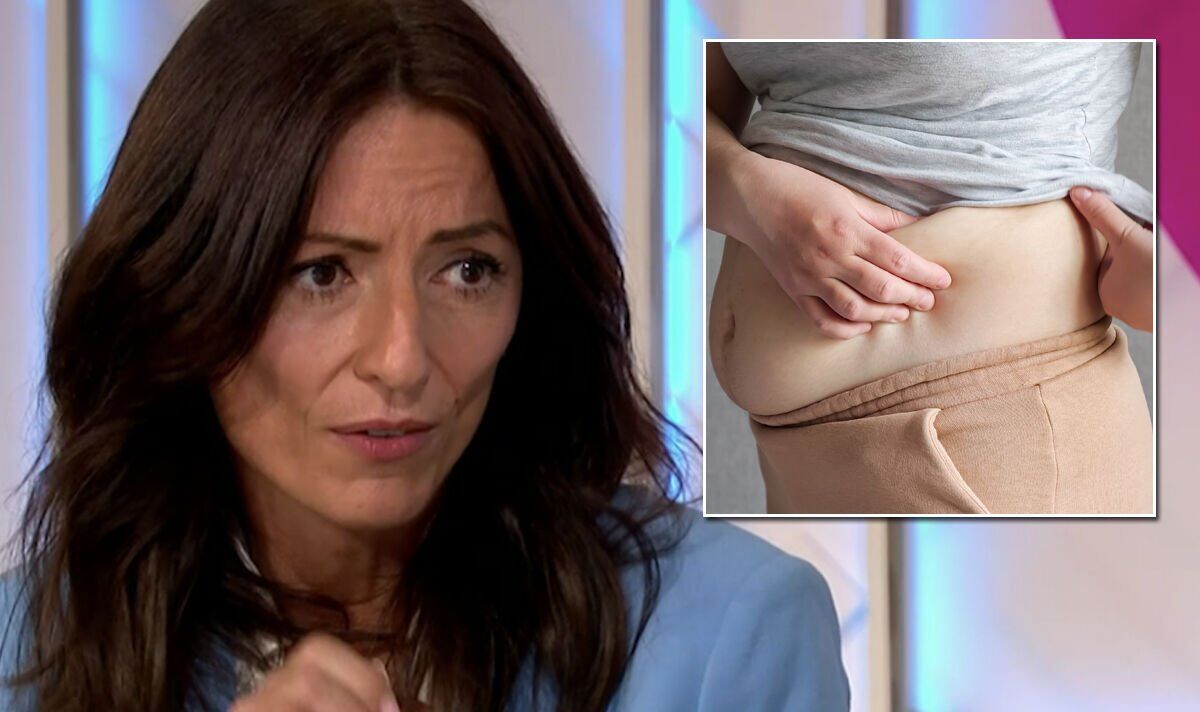Dr Potter shares advice for ‘menopause belly’
We use your sign-up to provide content in ways you’ve consented to and to improve our understanding of you. This may include adverts from us and 3rd parties based on our understanding. You can unsubscribe at any time. More info
Menopause marks the point in your life when you stop having your periods. The transition period is accompanied by a cascade of hormonal fluctuations that trigger uncomfortable symptoms like hot flushes. The way you store fat also changes, with certain parts of your figure taking the hit. Fortunately, Davina McCall shares how certain lifestyle tweaks helped her.
“Menopause belly” describes thickening of the waist and protruding tummy, which is usually triggered by hormonal changes making you prone to gain weight.
Speaking on ITV’s Lorraine, menopause specialist Dr Naomi Potter said: “During the perimenopause and menopause, where you store fat changes.
“When we are younger, we tend to store fat peripherally, so around arms, legs, face. As you go more towards midlife and beyond, it changes.
“You tend to store fat around your organs and around your middle and you tend to put weight on with increasing years and you also tend to lose muscle. That all contributes to that change of shape.”
READ MORE: Acholic stools are ‘the most common’ sign of pancreatic cancer in ‘initial’ stages

Davina shared that your diet is “really important” during this time, with portion control being the key.
She said: “I found out that I need to eat less than I used to – portion control.”
The presenter of the show, Lorraine Kelly, also agreed that this practice is “the thing that gets you through” menopause.
However, Davina also added that exercise could make a difference as well.
She said: “I think keeping your muscle strength is really important so strength training, which feels really counterproductive sometimes.
“But it’s really important for us older women to keep that muscle.”
What’s more, Dr Potter also backed simple lifestyle changes like exercise and diet as they can make a “massive difference” for your menopause symptoms.
The doctor said: “There’s lots of things you can do in terms of lifestyle to really improve quality of life and symptoms.”
READ MORE: The ‘first noticeable’ sign that cholesterol is dangerously clogging your arteries
Source: Read Full Article
